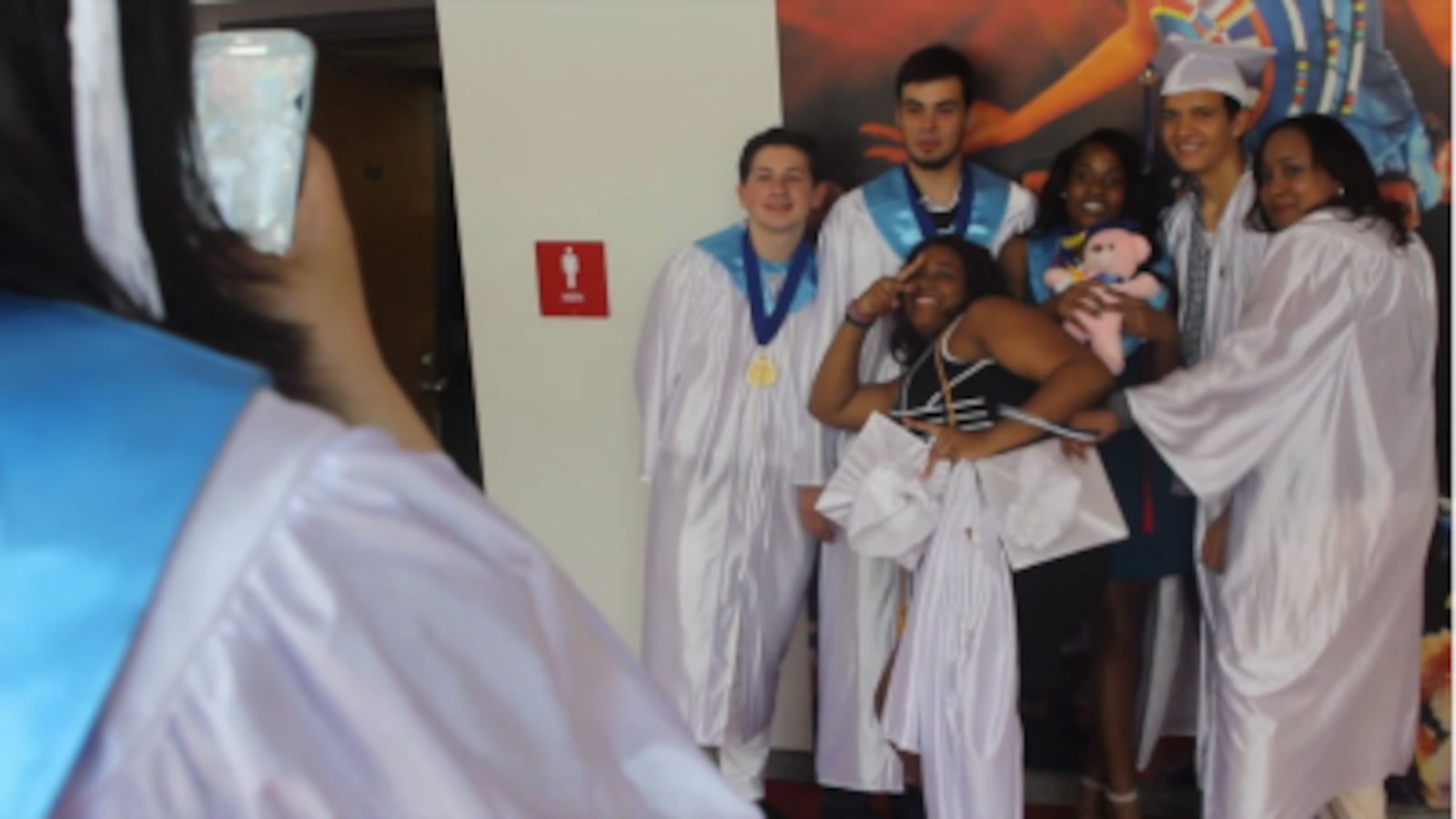Slightly more students left high school last year ready for college or jobs, though fewer than one-third of graduates met the academic skill requirements of the city’s public university system, according to city data released Monday.
The modest gains follow a small uptick in the state test scores of the city’s elementary and middle-school students, which were announced this summer. Those scores and the data about students’ preparedness for college or work are are included in the de Blasio administration’s new school-quality reports, which were posted online Monday.
Each school now gets two reports — one for families and one for educators— that include survey and school-observation findings alongside test scores and graduation rates. Most notably, the reports no longer rank schools or give them A-to-F letter grades, which the previous administration used to decide which schools to close.
Several parents praised the new reports Monday, saying they were glad to trade the bluntness of the letter grades for more nuanced school appraisals, even if it meant more work for them.
“Some parents would see the letter A and not read anything else,” said Dorna Phillip, whose son is sophomore at It Takes a Village Academy in East Flatbush. “This gives them a little more homework.”
The city included the information about students’ college readiness in an announcement Monday about the new school reports.
Among this year’s public high school graduates, 32 percent had high enough test scores to avoid remedial math and English classes at the City University of New York, the city said. Last year, 31 percent of graduates tested out of those review classes, up from 29 percent in 2012.
In addition, 51 percent of the class of 2013 enrolled in college, a work-training program, or public service after graduation, compared to 50 percent the year before.
And in the class of 2014, 46 percent of students passed at least one course or test — such as an Advanced Placement exam or a technical assessment tied to particular industry — meant to approximate college or professional-level work. The year before, 44 percent of students had taken those advanced courses.
The Bloomberg administration added those measures to its school ratings in 2012 after it became clear that even as more students graduated from high school, they were ill-equipped for college. (The vast majority of city high school graduates who enroll at CUNY must take remedial classes.)
Students who get a “taste of college” during high school through advanced classes or early-college programs tend to fare better after graduation, said Kim Nauer, the education project director at the New School’s Center for New York City Affairs. Taking just one such course lowers the odds that a student will need to take review classes in college, according to a 2013 report about college readiness that Nauer co-authored.
Despite the benefits of college-preparatory courses, most high schools offer a limited selection, Nauer noted. Only 28 out of 342 schools reviewed for the report offered advanced algebra, chemistry or physics classes.
“That is still a big giant question mark for the current chancellor,” Nauer said. “What’s the quality of the college-preparatory curriculum in each high school?”
The bar for students to prove they are ready to take CUNY classes is higher than the one they must meet to earn a high school diploma. While high school students must earn at least 65 points on the required exit exams to graduate, they must score 75 in English and 80 in math on those same Regents exams to skip CUNY’s remedial classes. (They can also use their scores on the SAT, ACT, or CUNY’s own entrance tests.)
Even high-performing schools can struggle to help students hit that target. At It Takes a Village Academy, for instance, 91 percent of students graduate in four years, compared to the city average of 66 percent in 2013. Still, just 16 percent of the small high school’s graduates meet the CUNY proficiency standards.
Principal Marina Vinitskaya pointed out that nearly a quarter of her students are still learning English and many arrive with minimal reading skills. She said even if they are not considered college ready by the time they graduate, it is still a major accomplishment for them to earn diplomas.
“The same students, when they go to other high schools,” she said, “they don’t graduate at all.”


